
2023 Innovation Lab Teacher Pay Data Guide
Each year, BEST NC’s North Carolina Education Innovation Lab brings together a wide-ranging group of education stakeholders to explore emerging and transformative solutions to our state’s greatest educational challenges. We believe our collective efforts are stronger when we can debate big ideas, grounded in facts.
The key data below are featured in BEST NC’s recent report Teacher Pay in North Carolina: A Smart Investment in Student Achievement. These data help frame the key challenges facing North Carolina’s teacher compensation system and offer our recommendations for strengthening teacher pay in our state. It is our hope that these data will be informative and thought-provoking, enabling you to actively and meaningfully engage in today’s Innovation Lab sessions.
Starting Teacher Pay is Not Competitive with Surrounding States, Making it Difficult to Attract Top Candidates and Compete for Talent in Our Region
Cost of living-adjusted starting teacher pay in North Carolina ranks last in the Southeast region.
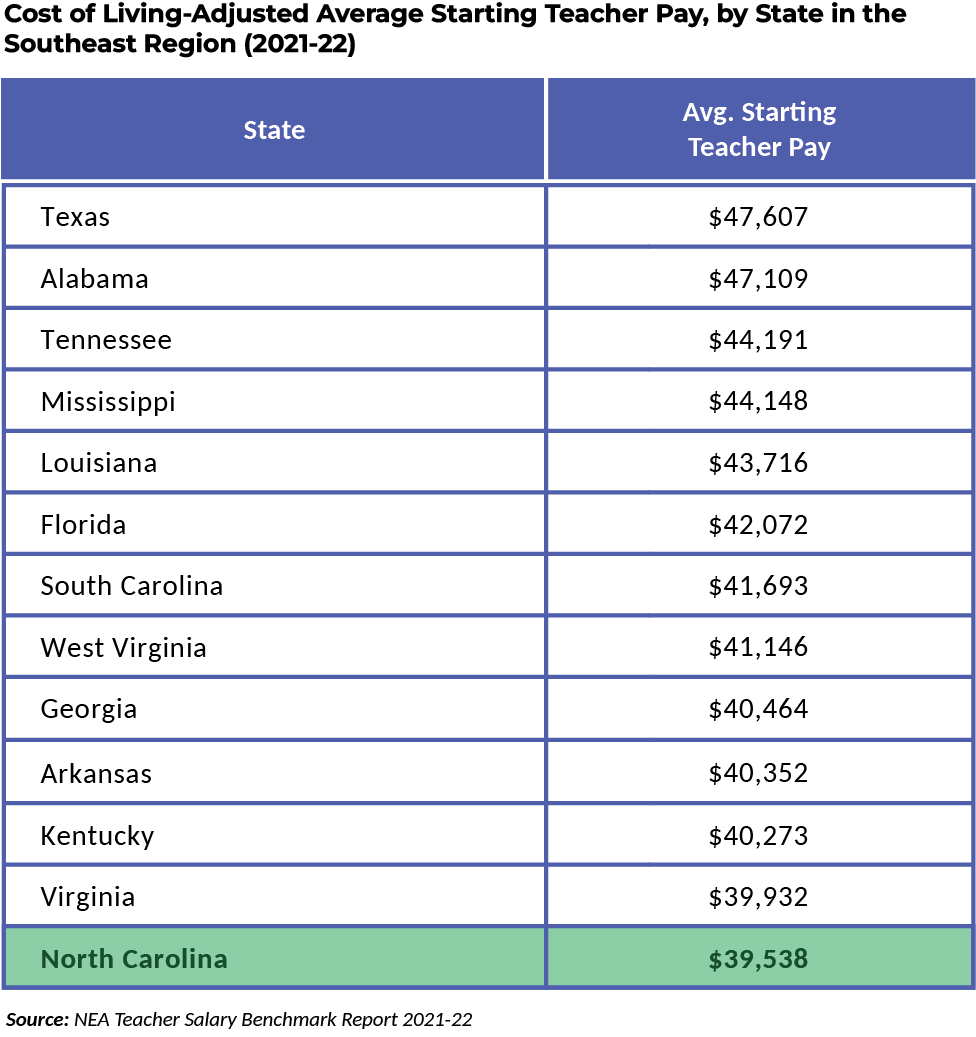
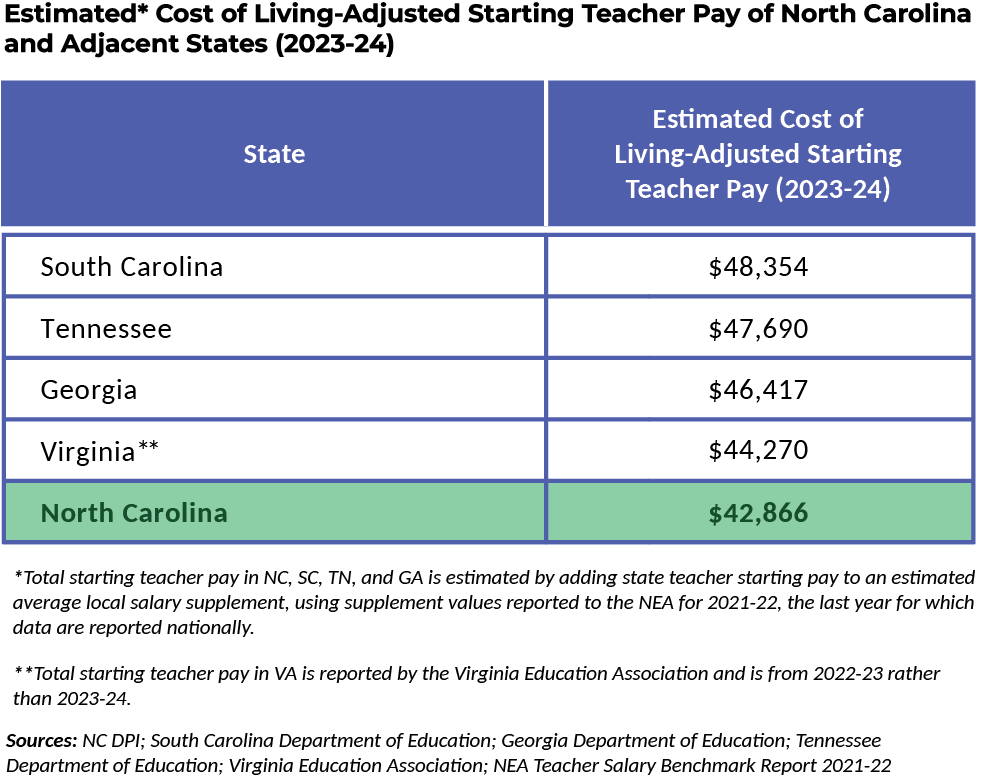
Uncompetitive starting pay impacts the teacher pipeline in multiple ways. A 2020 analysis from the North Carolina Department of Public Instruction found that almost a quarter (23%) of educator preparation program graduates were not employed in North Carolina schools within two years of graduation. Additionally, between 2017 and 2022, teacher attrition for beginning teachers in North Carolina was 12%, compared to 7% for fully licensed teachers. To ensure that teacher candidates that complete their training in North Carolina enter the public school system and are retained, we must raise teacher starting pay to be competitive with our regional neighbors.
Recommendation: Raise the Floor
Significantly increase starting pay, particularly for well-prepared candidates, to be competitive with surrounding states and similar industries.
Under the Existing Salary Schedule, North Carolina Teachers Must Wait Too Long Before Their Salaries Provide a Living Wage that Can Support a Family
In 2022-23, nearly two thirds of North Carolina teachers’ state base pay fell below a living wage. State base pay does not include local salary supplements or bonuses. Living wage gaps are largest in the first ten years of a teacher’s career, when most teachers choose to start their families.
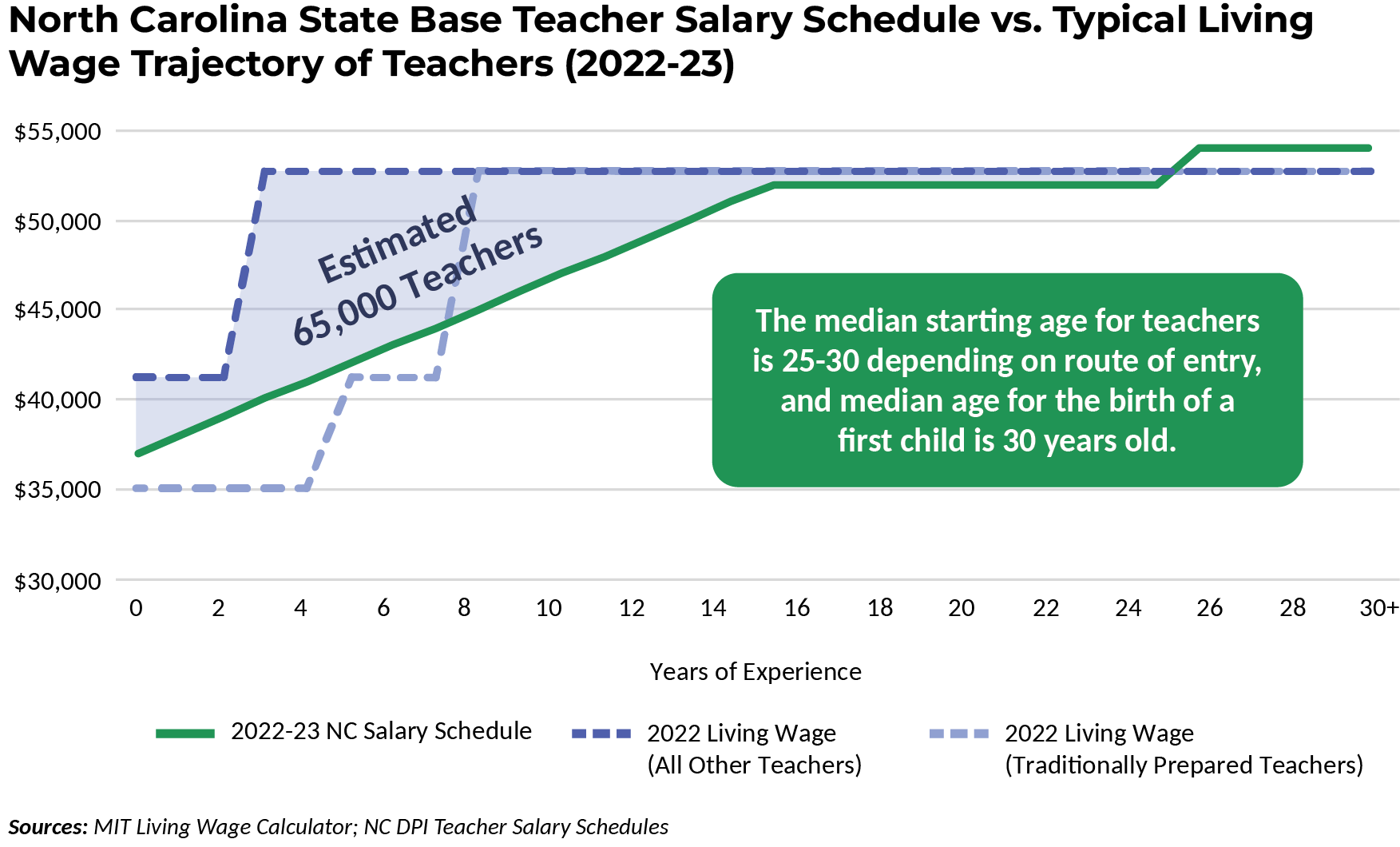
This salary structure is in conflict with research that finds the largest gains in teacher effectiveness are in the first five years of a teacher’s career.
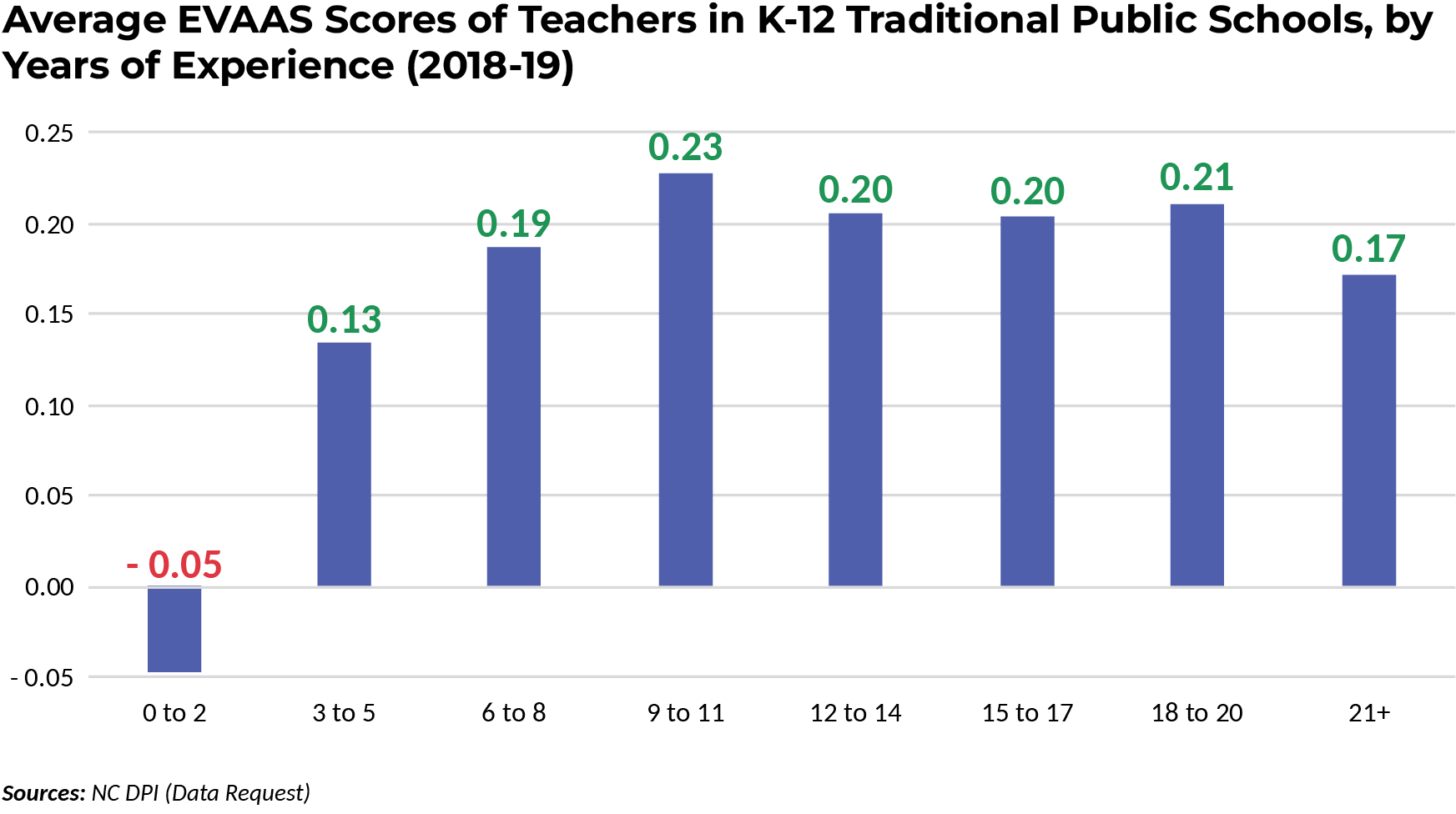
Recommendation: Ensure a Living Wage
Replace the outdated step-and-lane schedule with a front-loaded pay structure in which effective teachers earn full base teacher pay earlier in their career; ensuring that all licensed teachers can support a family and have access to additional career and compensation advancement opportunities.
The Traditional Teacher Compensation Model Does Not Provide Meaningful Professional Promotions that Attract Top Talent and Keep Effective Educators in the Classroom
Nations that perform at the top on international assessments recruit 100% of teachers from the top-third of college graduating classes. In the United States, that number is 23%, and 14% in high-poverty schools.
A survey of college students in the top third of their graduating class who do not plan to go into teaching provides pay-related insights into why teaching does not align with their compensation and career aspirations:
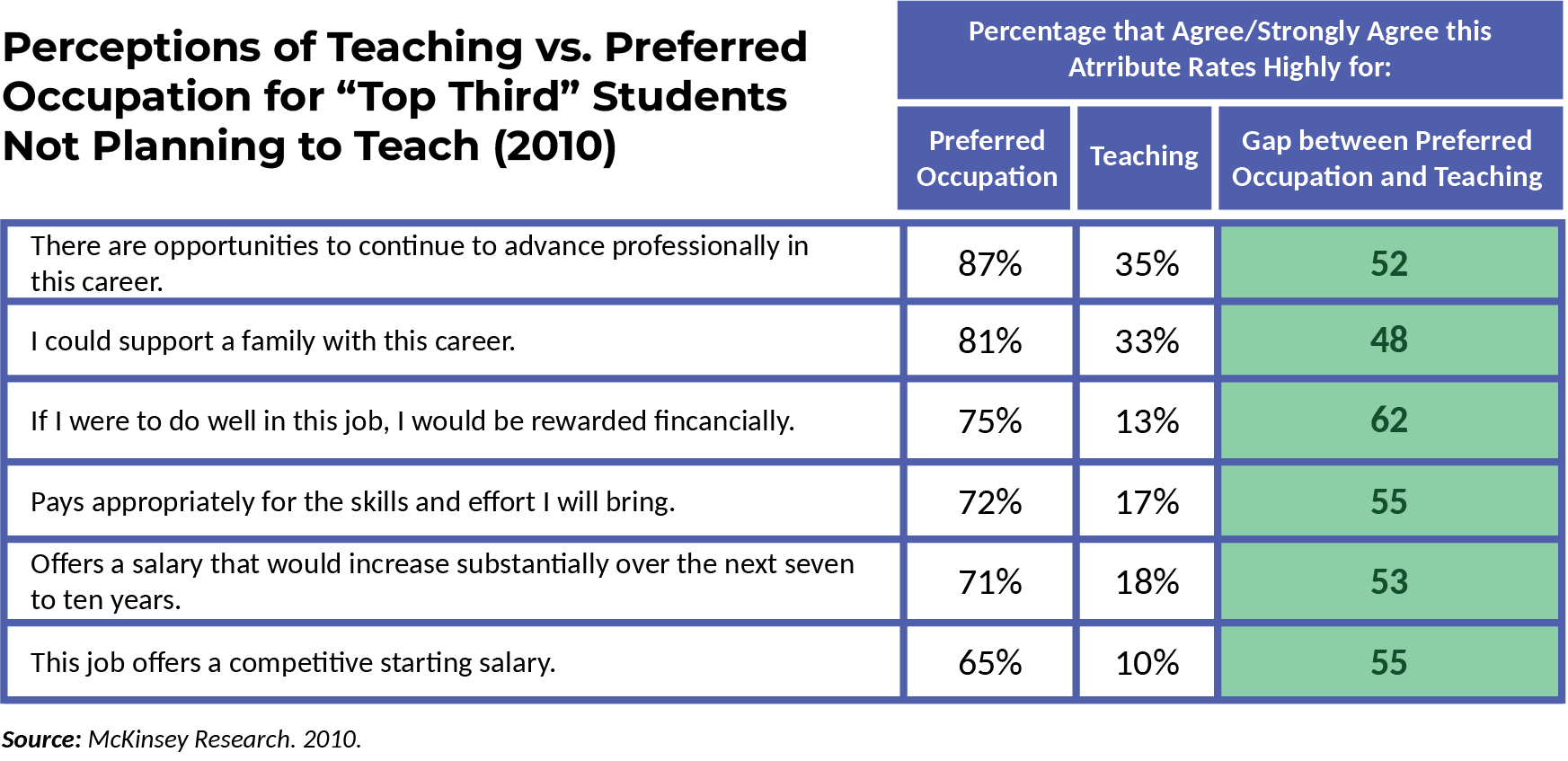
In North Carolina, Advanced Teaching Roles (ATR) is providing meaningful opportunities for career advancement, allowing teachers with proven effectiveness to extend their reach in exchange for higher pay. ATR models revamp outdated school staffing structures, provide beginning teachers with job-embedded professional development, and have positive impacts on student performance.
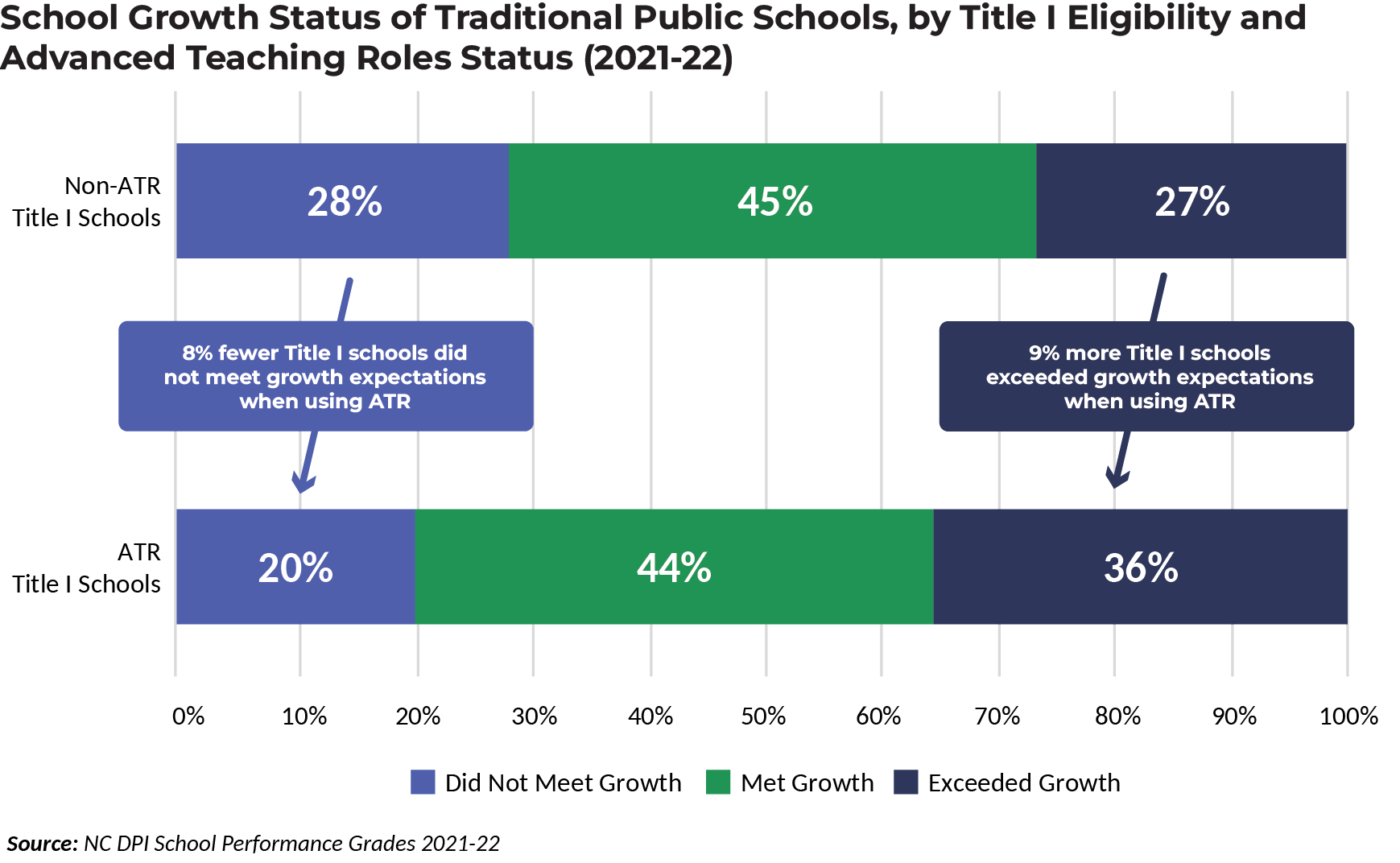
In many of the 24 districts currently implementing ATR, teachers earn additional compensation, on top of their ATR supplement, for working in hard-to-staff schools. This compensation strategy helps recruit talented teachers to schools where they are needed most and provides advancement opportunities similar to those in private sector careers.
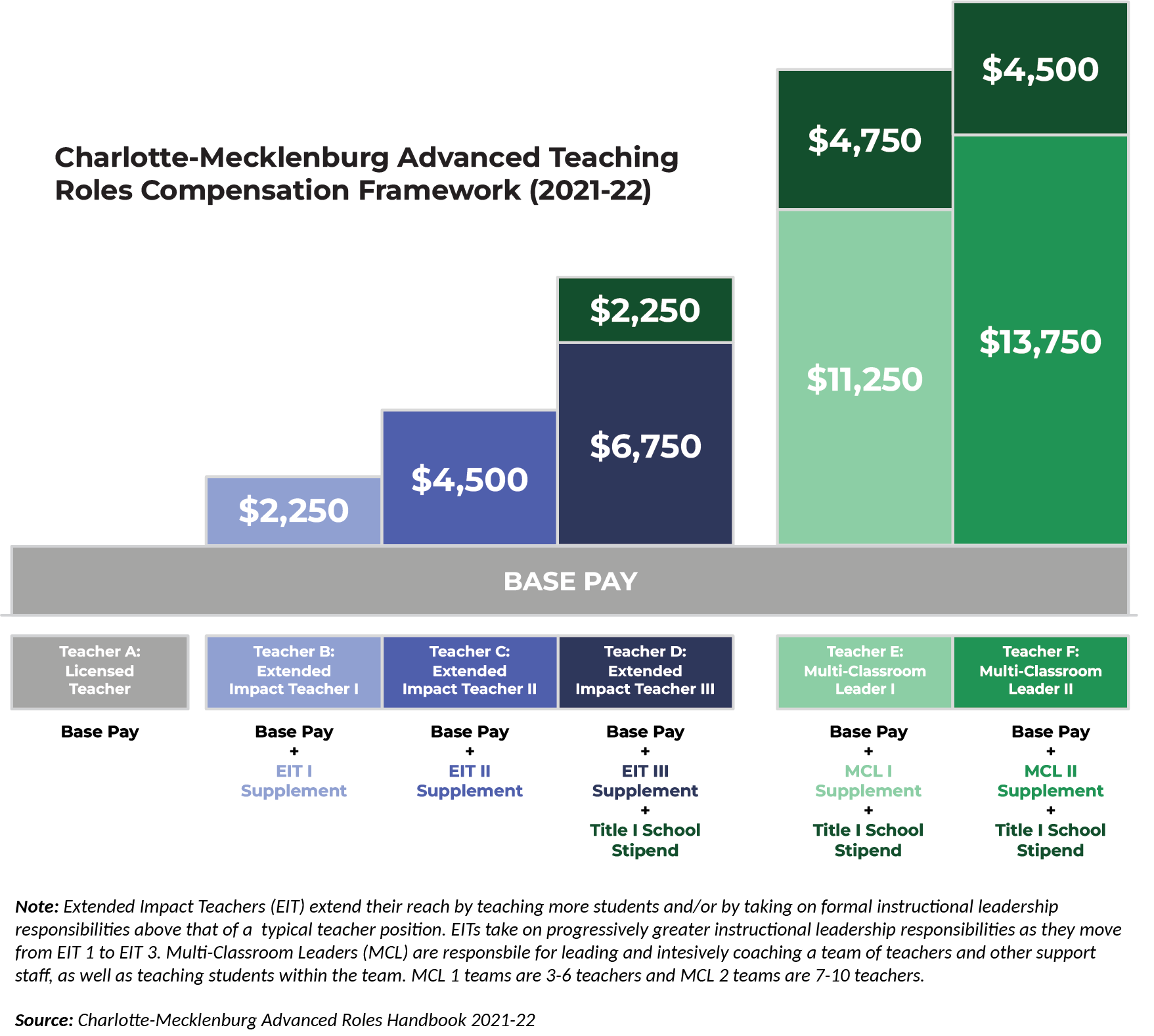
Recommendation: Raise the Ceiling
Implement Advanced Teaching Roles statewide to provide well-paid professional advancement opportunities to effective teachers who want to extend their reach while transforming the organizational structures of schools.
Existing Pay Structures are not Designed to Fill Hard-to-Staff Subject Area Positions and Schools, Leading to Persistent, Critical Vacancies and Disparities in Student Access to Effective Educators
In North Carolina, students in high-poverty schools are more likely to be taught by less experienced, less qualified teachers than students who attend more affluent schools. This inequitable distribution of teaching talent restricts student access to high-quality teachers.
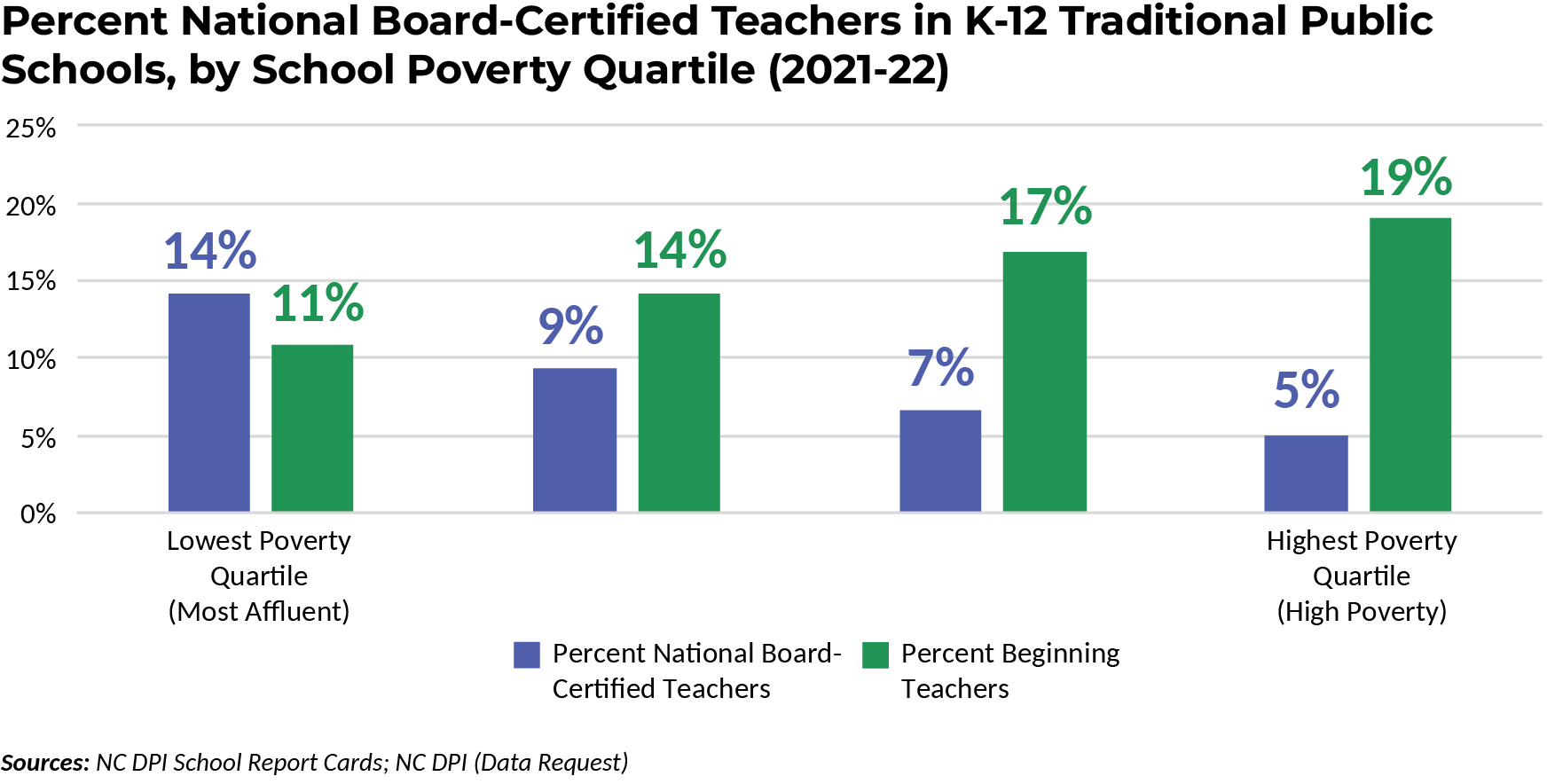
Additionally, in high-demand fields like STEM subjects, average teacher pay significantly trails average wages for UNC System graduates for those majors. Low salaries likely contribute to the markedly higher teacher vacancy rates in these subject areas.
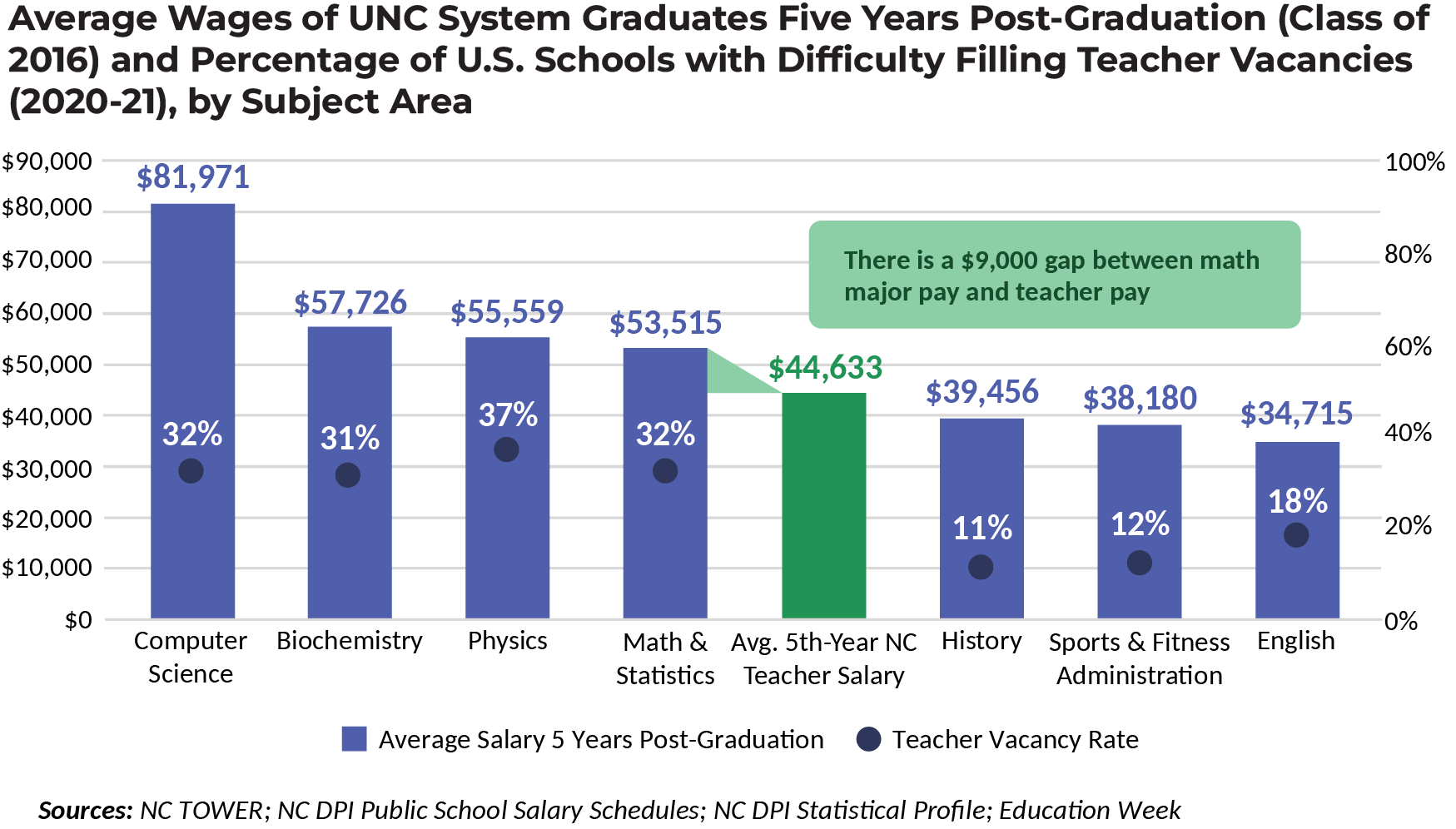
Recommendation: Attract and Retain Hard-to-Staff Positions
Establish competitive, differentiated pay for high-demand degrees like STEM and Special Education, and increase or broaden incentives for teaching in hard-to-staff schools.

